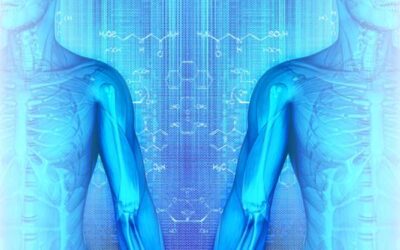Trust Your Gut: An Introduction to Gut Health
The gut, also known as the digestive tract or gastrointestinal tract, covers the sections of the body involved in food intake and excretion. The whole digestive tract from mouth, esophagus, stomach and intestines to pancreas, liver, gallbladder, colon and rectum is a part of this system. However, if we talk about gut health, we are talking about the bacteria in your microbiome and the digestion that takes place in your large intestine due to these microbiomes.
All food is broken down in the digestive tract to a basic form so it may enter the bloodstream and be taken as nutrients by your body. However, efficient digestion is only possible when your gastrointestinal tract is healthy.
A healthy gut uses its immune cells and healthy bacteria to fight toxic fungi, bacteria and various viruses. Also, there is constant communication with the brain through hormones and nerves to help maintain good body health.
Role of the Digestive Tract in Your Body
Scientists have been surprised by the complex human digestive system and attempting to understand its functioning.
Your gut plays a critical role in managing the following:
- The immune system
- Autoimmune diseases
- Mood
- Mental well-being
- Endocrine disorders
- Skin issues
- Obesity
- Cancer
It is critical to maintain a healthy digestive tract since it has such a close relationship with so many other aspects of your health.
Importance of a Healthy Gut
Gut health has a significant impact on the brain. Serotonin, the hormone that makes us happy, is mostly generated in the gut. This connection between serotonin production and the gut is frequently the source of food cravings. On the other hand, psychological stress can have a harmful impact on your gut health and lead to inflammation and binge eating.
In addition to improving your mood, the healthy bacteria also helps release mind-boosting chemicals that increase your memory and cognitive performance. Alternatively, having too many harmful bacteria in your gut can disrupt your concentration and make it easier for toxins to enter your bloodstream.
The digestive tract also contains up to 80% of your immune tissue. It is no wonder that what you put into your bodies impacts how well your immune systems work. Because the intestines serve as a barrier between the circulation and the external world, it must have a strong immunity to combat viruses from food.
Common Signs of Gut Issues
You may be facing serious gut issues if you frequently face digestive problems which lead to discomfort, diarrhea, vomiting, nausea or constipation. If your heartburn and bloating does not go away or you notice black stools, you may be developing gut diseases.
Sudden weight loss, rectal bleeding, severe vomiting, fever, intense stomach pains, trouble swallowing food, or jaundice could all be signs of a serious gastrointestinal problem. You should always contact a doctor if you face prolonged gut issues.




